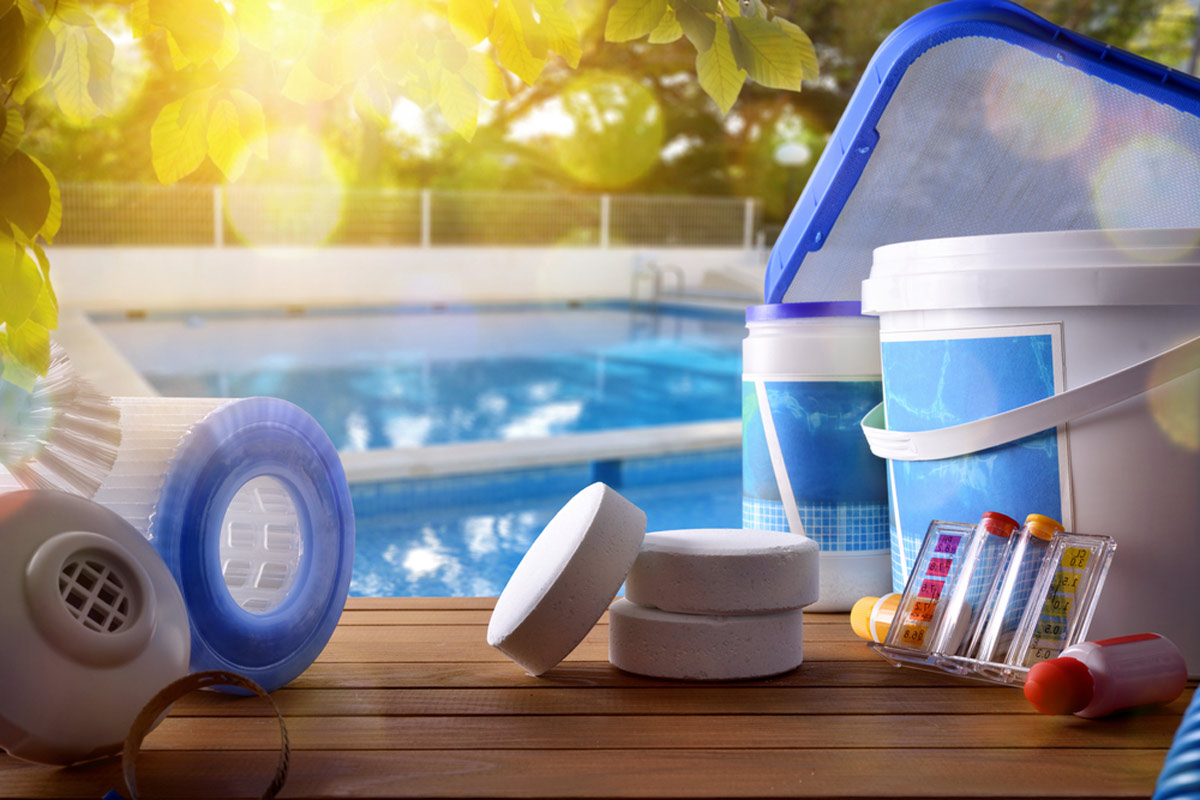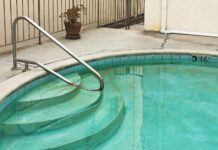Although most of us consider the pool a good summer fun and all-day enjoyment, we must be aware of the fact that it requires full maintenance. It is not just seasonal work that we do when using the pool. This maintenance actually lasts throughout the year. We need to take care of the pumps, filters, skimmers, etc. However, we also need to maintain the chemical balance of the water in our pool. And do we really need all those chemicals for the pool? Here is the answer to that question.
Having A Pool Is Good Summer Fun But Also A Responsibility
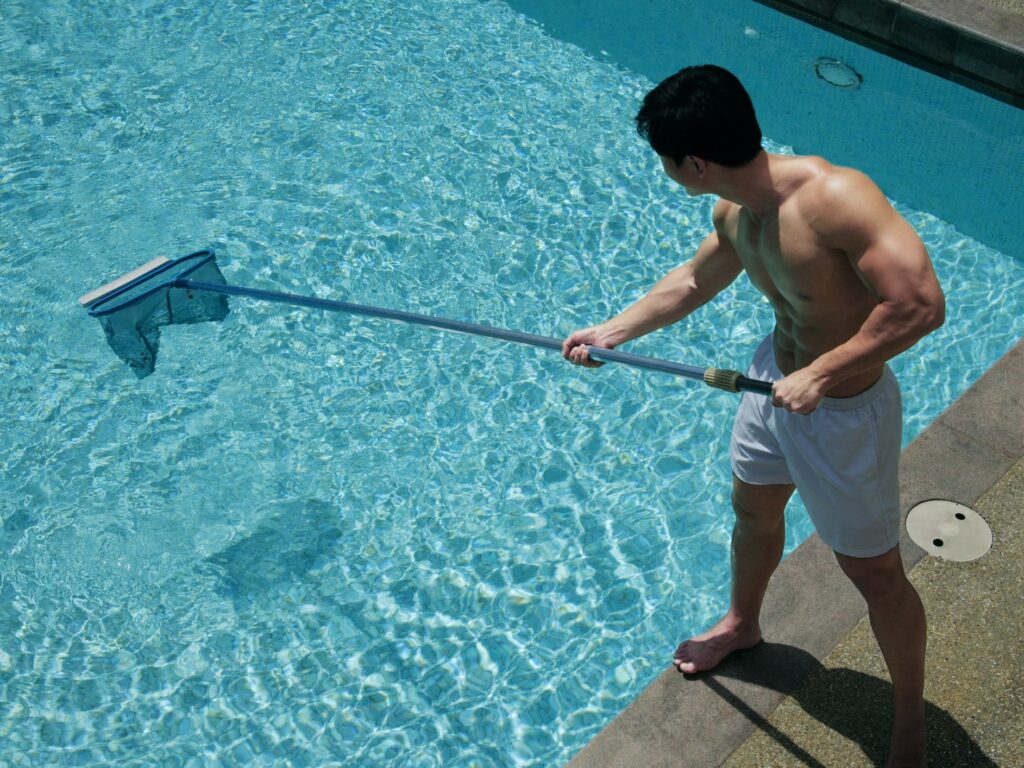
Anyone who owns even a smaller yard, thought at least once that it would be nice to have a pool. It is a beautiful place and a pleasant oasis where you can enjoy yourself with family and friends during the summer months. Also, owning your own pool allows you to relax with all the privacy it can provide to its users. Still, people have big doubts about swimming pools and their maintenance. You have to think carefully about the construction, the type of pool, maintaining the water temperature, etc. There are also concerns about cleaning and maintaining a chemical water balance. Therefore, many people wonder if and why we need all the chemicals to clean the pool. The answer is YES. Here’s why.
Using Pool Chemicals Is A Necessity
To make sure we are swimming in a pool where the water is chemically correct and crystal clear, we need to constantly monitor and maintain it. This includes both filtration and chemical treatment. However, some people are in doubt about the use of chemicals, so the question is whether we really need to use them and to what extent. The fact is that we need many pool chemicals because they are of great importance for the chemical correctness of the water in your pool. What are the ones we need the most?
Chlorine
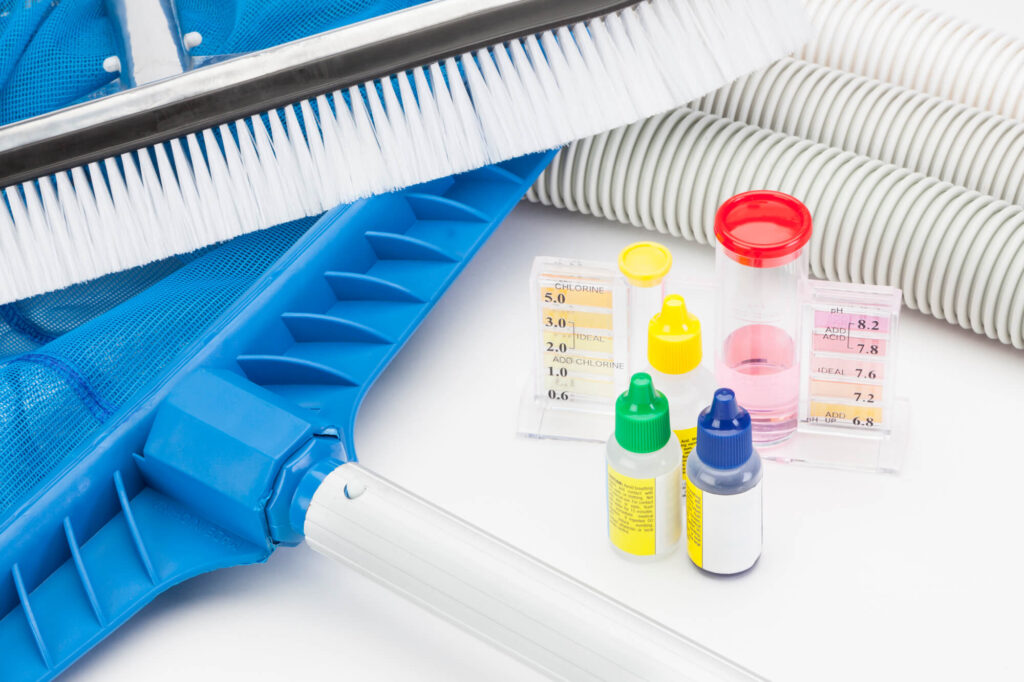
The basic chemical agent in pool maintenance is chlorine. We also use it during the first filling of the pool – to get rid of water from the deposition of impurities or residues of heavy metals such as iron. In the tropical heat, when the water temperature reaches 86 degrees or more, chlorine evaporates very quickly. Therefore, it is necessary to constantly monitor the level and increase the dosage.
In addition to the use of chlorine, it is also necessary to use a filtration pump. The filter must be regularly maintained and cleaned of the remains of impurities, as well as the deposits of chemicals that stick to it. With the use of chlorine, filtration device, and water conditioning agents – you will always have crystal clear and hygienically correct water in your pool. So the pool will be an inexhaustible source of pleasure.
PH Value Of Pool Water
Environmental influences as well as using the pool can bring various impurities and bacteria into the water. According to smartselfcleaningpools.com.au, that’s why we need to chemically treat the water to match the quality of the drinking water. Optimal PH value is one of the most important factors in chemical water preparation. After pouring water into the pool, we must first check its pH value. It tells us whether the water reacts acidic, neutral, or basic. The PH value is usually measured using a hand-held meter device. Initially, when we fill the pool, we should check the PH value daily.
Later, when the water calms down – a weekly check is enough. Keep in mind that when the PH value is above normal (around 7.6) – there is a secretion of minerals, our skin starts to itch and our eyes burn. Also, at elevated PH values, disinfectants work less effectively, which leads us to problems with maintaining hygienically flawless water. We adjust the optimal PH value of water with the help of a PH regulator. They are usually delivered in the form of granules which we dissolve in water and pour into the pool.
Flocculation
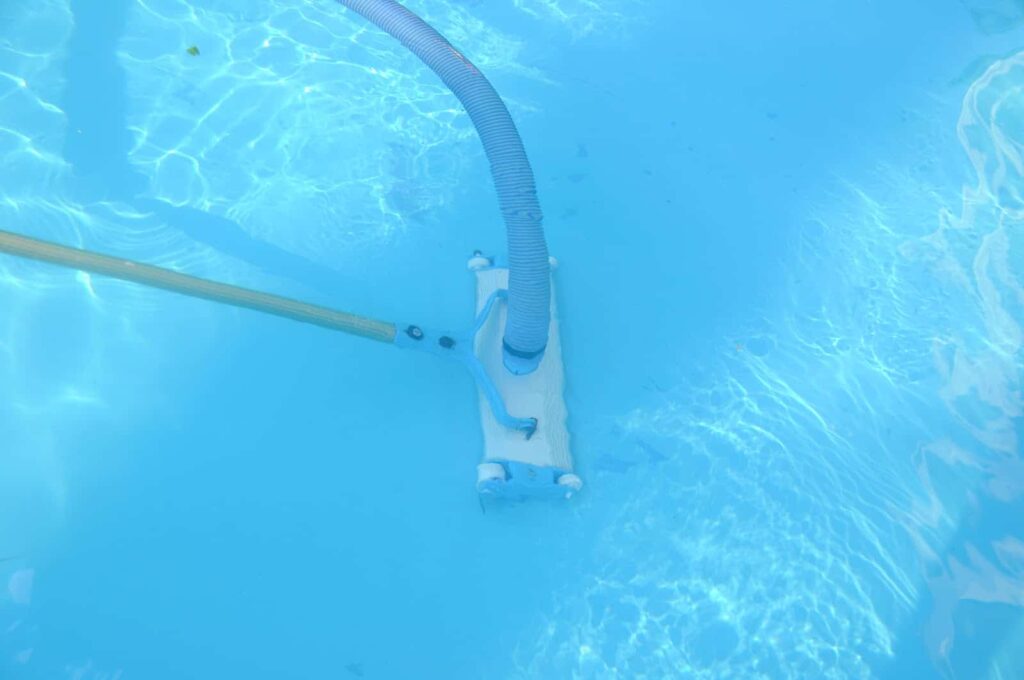
Flocculation is a process by which we thicken small impurities that the filter cannot retain. Water containing this type of impurity is usually turbid. If we measure a satisfactory amount of free chlorine in the water and the water is still cloudy – it is necessary to perform a flocculation procedure. We can do this in two ways. In a pool with a sand filter, we add chemicals to the overflow bars or skimmer. These agents will thicken the impurities which will then go to the sand filter.
The filter will keep the impurities and then it can be washed. This method does not apply to paper filters. In this case, you should stop the flow pump and pour the flocculant directly into the pool. After a few hours, the dirt will thicken and sink to the bottom of the pool. Then it is necessary to clean the bottom of the pool. You can do it best with the help of a water vacuum cleaner. You must know this method of flocculation can be applied to any pool, regardless of what filter you use.
Algaecide Treatment: Fight Against Algae
Algae are simple organisms that grow in large colonies in favorable conditions. Pool water meets these requirements. Algae themselves are not a source of infection. However, the problem with algae arises because they offer an ideal substrate for the development of other microorganisms. Namely, dead algae are food for bacteria that can start to accumulate in your pool. Therefore, treatment with algaecides is very important. The problem today is that algae have become quite resistant, so many of them are resistant to chlorine. Therefore, today on the market you can find special agents – algaecides that prevent their growth and that destroy them.
Conclusion
Although many people are against the use of a lot of chemicals when it comes to pool maintenance – we still see that most of these chemicals are justified in use. In any case, even when we know that, for example, chlorine is invasive – we must assess what is the greater harm and what is the benefit of its use. While this whole story may seem a little intimidating to future pool owners, it’s not. When pool maintenance becomes a routine for you, you will not have any problems. On the other hand, there is nothing that can replace your summer enjoyment in your own pool. Therefore, carefully prepare for the upcoming summer season. And when summer finally comes – relax and enjoy.

